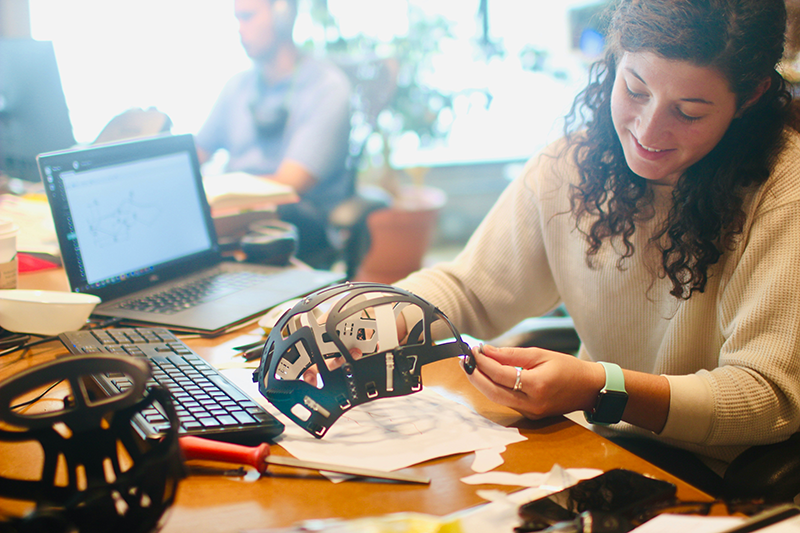
Arbetsvillkor och hållbart arbete
Arbetsvillkor och hållbart arbete är en av de sex främsta aktiviteterna i Eurofounds arbetsprogram för perioden 2021–2024. Eurofound kommer att fortsätta fungera som ett centrum för expertis som övervakar och analyserar utvecklingen på detta område, inräknat hur covid-19 -krisen har påverkat arbetsvillkor och kvalitet i arbetet, liksom praxis på arbetsplatsen.
Under 2021–2024 kommer Eurofound att tillhandahålla viktiga insikter i de utmaningar och framtidsutsikter som förknippas med arbetsvillkor och hållbart arbete i EU. Med utgångspunkt i länge etablerad expertis på området kommer Eurofound att undersöka tendenser och framsteg över tid samt identifiera nya problem gällande arbetsvillkor och kvalitet i arbetet. Analysen kommer att omfatta olika länder, sektorer, yrken och arbetstagargrupper avseende frågor som arbetsorganisationoch distansarbete, arbetstid, balans mellan arbete och fritid, likabehandling, hälsa och välbefinnande på arbetsplatsen, kompetens och utbildning, inkomster och framtidsutsikter samt arbetstillfredsställelse.Atypiska anställningsformerkommer att ges ett särskilt fokus, särskilt verksamhet som egenföretagare.
Mot bakgrund av EU:s demografiska utmaning med en åldrande befolkning och arbetslivets ökande mångfald kommer Eurofound att fortsätta utforska de faktorer som gör det möjligt för fler arbetstagare att fortsätta arbeta längre. Analysen kommer även att rikta ljuset mot förbättrad kvalitet i arbetet som ett incitament för att öka deltagandet på arbetsmarknaden och förstärka arbetstagarnas motivation, vilket bidrar till hållbart arbete genom hela livet.
Sambanden mellan arbete och hälsa kommer att undersökas i nära samarbete med Europeiska arbetsmiljöbyrån (EU-Osha). Eurofound avser att bygga vidare på sitt samarbete med Internationella arbetsorganisationen (ILO) om frågor kring framtidens arbete och arbetsvillkoren på global nivå.
- Infografik: Arbetsförhållanden och hållbart arbete i EU
"Det är totalt sett goda nyheter eftersom arbetsvillkoren inom EU förbättras – även om detta sker mycket långsamt – men problemet är att det inte nödvändigtvis är sant för alla grupper av arbetstagare. Det beror på vilken sektor du arbetar i, liksom vilken utbildningsnivå du har, och uppriktigt sagt beror det också på om du är man eller kvinna.”
Barbara Gerstenberger, chef för arbetslivsenheten


























